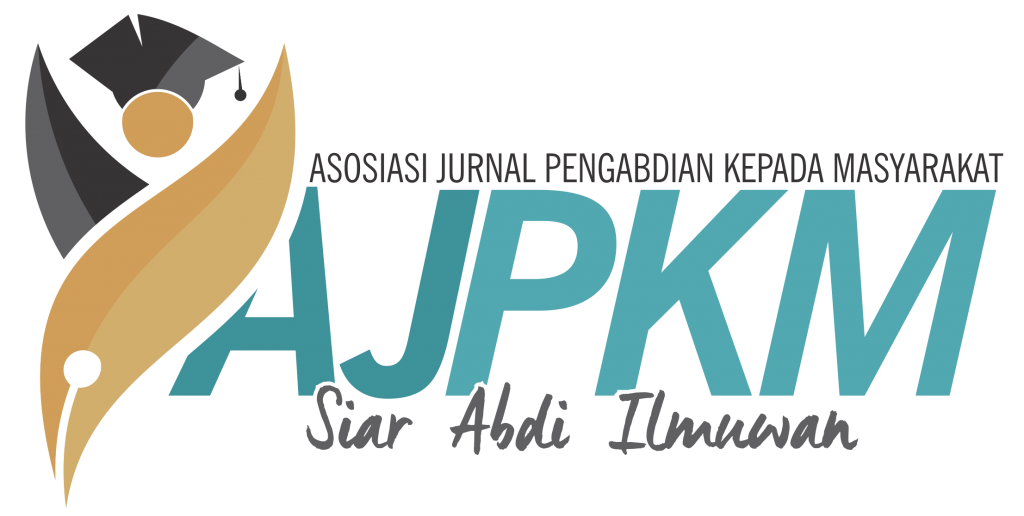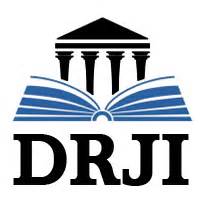STRATEGI MENINGKATKAN PARTISIPASI AKTIF PEREMPUAN DALAM PERENCANAAN PEMBANGUNAN DI NEGERI KEDAH, MALAYSIA
Abstrak
In development planning, women's involvement is imperative in order to create conditions which puts women in a fair position, without discrimination. This condition does not only occur in Indonesia but also occurs in developing countries such as Malaysia. From this phenomenon, the Community Service Team (PKM) of Universitas Islam Riau (UIR) in collaboration with Universiti Utara Malaysia (UUM) located in the Government of Yan District Negeri Kedah, Malaysia made an activity program with the theme of being an active woman in development planning. The purpose of PKM activities (1) is to provide an understanding of the importance of women's participation in development planning in Kedah, Malaysia, (2) to provide an understanding of the direct impact that will be felt by the government if women can play an active role directly in development planning. The method used uses the Rapid Rural Appraisal (RRA), Participatory Rural Appraisal (PRA), Actian Research (AR) methods. The results of PKM activities show (1) an increase in the interest and enthusiasm of counseling participants in the involvement of governance in Kedah, Malaysia. (2) an increase in the understanding of counseling participants on the importance of women's participation in development planning in Kedah, Malaysia. (3) there is an increase in the understanding of counseling participants about the direct impact that will be felt by the Kedah State government if women can play an active role directly in the development planning of Kedah State, Malaysia. (4) there is an increase in maximizing programs in the field of development and in the field of community empowerment that are directly related to meeting the needs of women and children of Kedah State, Malaysia.
Dalam perencanaan pembangunan, keterlibatan perempuan menjadi keharusan yang tujuannya agar tercipta kondisi yang menempatkan perempuan dalam posisi yang adil, tanpa diskriminasi. Kondisi seperti ini tidak hanya terjadi di Indonesia, tetapi juga terjadi pada negara-negara berkembang seperti Malaysia. Dari fenomena tersebut, Tim Pengabdian Kepada Masyarakat (PKM) Universitas Islam Riau (UIR) bekerjasama dengan Universiti Utara Malaysia (UUM) bertempat di Pemerintah Yan District,Negeri Kedah, Malaysia membuat program kegiatan dengan tema menjadi perempuan aktif dalam perencanaan pembangunan. Tujuan kegiatan PKM (1) untuk memberikan pemahaman tentang pentingnya partisipasi perempuan dalam perencanaan pembangunan di Negeri Kedah, Malaysia, (2) untuk memberikan pemahaman tentang dampak langsung yang akan dirasakan oleh pemerintah jika perempuan dapat berperan aktif secara langsung dalam perencanaan pembangunan. Metode yang digunakan menggunakan metode Rapid Rural Appraisal (RRA), Participatory Rural Appraisal (PRA), dan Action Research (AR). Hasil kegiatan PKM menunjukkan (1) adanya peningkatan animo dan antusiasme peserta penyuluhan dalam keterlibatan penyelenggaraan pemerintahan di Negeri Kedah, Malaysia. (2) Adanya peningkatan pemahaman peserta penyuluhan tentang pentingnya partisipasi perempuan dalam perencanaan pembangunan di Negeri Kedah, Malaysia. (3) Adanya peningkatan pemahaman peserta penyuluhan tentang dampak langsung yang akan dirasakan oleh pemerintah Negeri Kedah jika perempuan dapat berperan aktif secara langsung dalam perencanaan pembangunan Negeri Kedah, Malaysia. (4) Adanya peningkatan memaksimalkan program di bidang pembangunan dan di bidang pemberdayaan masyarakat yang berhubungan langsung dengan pemenuhan kebutuhan perempuan dan anak-anak Negeri Kedah, Malaysia.
Kata Kunci
Teks Lengkap:
PDFReferensi
Acosta, M., van Wessel, M., van Bommel, S., Ampaire, E. L., Twyman, J., Jassogne, L., & Feindt, P. H. (2020). What does it Mean to Make a ‘Joint’ Decision? Unpacking Intra-household Decision Making in Agriculture: Implications for Policy and Practice. The Journal of Development Studies, 56(6), 1210–1229. https://doi.org/10.1080/00220388.2019.1650169
Adam, I. O. (2020). Examining E-Government development effects on corruption in Africa: The mediating effects of ICT development and institutional quality. Technology in Society, 61, 101245. https://doi.org/https://doi.org/10.1016/j.techsoc.2020.101245
Alemie, T. C., Buytaert, W., Clark, J., Tilahun, S. A., & Steenhuis, T. S. (2022). Barriers to implementing poverty alleviation through livelihood strategies: A participatory analysis of farming communities in Ethiopia’s upper Blue Nile basin. Environmental Science & Policy, 136, 453–466. https://doi.org/https://doi.org/10.1016/j.envsci.2022.07.002
Autio, A., Johansson, T., Motaroki, L., Minoia, P., & Pellikka, P. (2021). Constraints for adopting climate-smart agricultural practices among smallholder farmers in Southeast Kenya. Agricultural Systems, 194, 103284. https://doi.org/https://doi.org/10.1016/j.agsy.2021.103284
Bauer, S., Milani, T. M., von Brömssen, K., & Spehar, A. (n.d.). Gender equality in the name of the state: state feminism or femonationalism in civic orientation for newly arrived migrants in Sweden? Critical Discourse Studies, 1–19. https://doi.org/10.1080/17405904.2023.2228933
Damayanti, R., & Syarifuddin, S. (2020). The inclusiveness of community participation in village development planning in Indonesia. Development in Practice, 30(5), 624–634.
de Carvalho, C. P., Sol, H., Saraiva, A., Rosa, S., & Fino, D. (2023). Local Heritage in Contemporary Times: Artistic Creation and the Intangibilities of Place. Heritage & Society, 16(1), 68–87. https://doi.org/10.1080/2159032X.2022.2126227
DeQuero-Navarro, B., Aoun Barakat, K., Shultz, C. J., Araque-Padilla, R. A., & Montero-Simo, M. J. (2020). From conflict to cooperation: A macromarketing view of sustainable and inclusive development in Lebanon and the Middle East. Environmental Management, 66, 232–247.
Eriksen, S., Schipper, E. L. F., Scoville-Simonds, M., Vincent, K., Adam, H. N., Brooks, N., Harding, B., Khatri, D., Lenaerts, L., Liverman, D., Mills-Novoa, M., Mosberg, M., Movik, S., Muok, B., Nightingale, A., Ojha, H., Sygna, L., Taylor, M., Vogel, C., & West, J. J. (2021). Adaptation interventions and their effect on vulnerability in developing countries: Help, hindrance or irrelevance? World Development, 141, 105383. https://doi.org/https://doi.org/10.1016/j.worlddev.2020.105383
F.G. Reis, I., Gonçalves, I., A.R. Lopes, M., & Henggeler Antunes, C. (2021). Business models for energy communities: A review of key issues and trends. Renewable and Sustainable Energy Reviews, 144, 111013. https://doi.org/https://doi.org/10.1016/j.rser.2021.111013
Farahani, I., Laeer, S., Farahani, S., Schwender, H., & Laven, A. (2020). Blended learning: Improving the diabetes mellitus counseling skills of German pharmacy students. Currents in Pharmacy Teaching and Learning, 12(8), 963–974. https://doi.org/https://doi.org/10.1016/j.cptl.2020.04.016
Fatimah, Y. A., Govindan, K., Murniningsih, R., & Setiawan, A. (2020). Industry 4.0 based sustainable circular economy approach for smart waste management system to achieve sustainable development goals: A case study of Indonesia. Journal of Cleaner Production, 269, 122263. https://doi.org/https://doi.org/10.1016/j.jclepro.2020.122263
Fekih Zguir, M., Dubis, S., & Koç, M. (2021). Embedding Education for Sustainable Development (ESD) and SDGs values in curriculum: A comparative review on Qatar, Singapore and New Zealand. Journal of Cleaner Production, 319, 128534. https://doi.org/https://doi.org/10.1016/j.jclepro.2021.128534
Fernandes, S. da C., Pigosso, D. C. A., McAloone, T. C., & Rozenfeld, H. (2020). Towards product-service system oriented to circular economy: A systematic review of value proposition design approaches. Journal of Cleaner Production, 257, 120507. https://doi.org/https://doi.org/10.1016/j.jclepro.2020.120507
Gaisie, E., & Cobbinah, P. B. (2023). Planning for context-based climate adaptation: Flood management inquiry in Accra. Environmental Science & Policy, 141, 97–108. https://doi.org/https://doi.org/10.1016/j.envsci.2023.01.002
Gunawan, J., Permatasari, P., & Tilt, C. (2020). Sustainable development goal disclosures: Do they support responsible consumption and production? Journal of Cleaner Production, 246, 118989. https://doi.org/https://doi.org/10.1016/j.jclepro.2019.118989
Hilson, G., & Maconachie, R. (2020). Artisanal and small-scale mining and the Sustainable Development Goals: Opportunities and new directions for sub-Saharan Africa. Geoforum, 111, 125–141. https://doi.org/https://doi.org/10.1016/j.geoforum.2019.09.006
Ida, R., Ilahiati, N. K., & Saud, M. (2023). Media discourse on Islamic women jihadists in Indonesia: Islamic radicalism post-Arab Spring. Feminist Media Studies, 23(8), 4302–4317. https://doi.org/10.1080/14680777.2023.2171083
Maulidiah, S., Monalisa, M., Ali, Z., Zakaria, S. Z. S., Majid, N. A., Arifin, K., Ramli, Z., & Emrizal, E. (2020). Environmental management: A study on the precautionary principle in siak regency of Indonesia towards sustainable development. EM International, 26(3), 1085–1089.
Maulidiah, S., Rauf, R., Manaf, H. A., & Khotami, K. (2023). Evaluation Of Simultaneous Village Head Elections In Kampar District, Riau Province In 2021. CosmoGov: Jurnal Ilmu Pemerintahan, 9(2), 147–157. https://doi.org/https://doi.org/10.24198/cosmogov.v9i2.48887
Newell, R., Picketts, I., & Dale, A. (2020). Community systems models and development scenarios for integrated planning: Lessons learned from a participatory approach. Community Development, 51(3), 261–282. https://doi.org/10.1080/15575330.2020.1772334
Olanrewaju, O. I., Kineber, A. F., Chileshe, N., & Edwards, D. J. (2022). Modelling the relationship between Building Information Modelling (BIM) implementation barriers, usage and awareness on building project lifecycle. Building and Environment, 207, 108556. https://doi.org/https://doi.org/10.1016/j.buildenv.2021.108556
Pla-Julián, I., & Guevara, S. (2020). Mainstreaming gender and sustainability jointly: a case study from a local government in Spain. Local Environment, 25(3), 258–271. https://doi.org/10.1080/13549839.2020.1732314
Rauf, R., Prayuda, R., & Munaf, Y. (2023). Model of Government Development for MSMEs Through One Village One Product (OVOP) Concept by the Cooperatives and MSMEs Office in Rokan Hilir Regency. International Journal of Sustainable Development and Planning, 18(2), 635–640. https://www.scopus.com/record/display.uri?eid=2-s2.0-85152132017&origin=resultslist
Suharno, Pambudi, N. A., & Harjanto, B. (2020). Vocational education in Indonesia: History, development, opportunities, and challenges. Children and Youth Services Review, 115, 105092. https://doi.org/https://doi.org/10.1016/j.childyouth.2020.105092
Tseng, M.-L., Tran, T. P. T., Ha, H. M., Bui, T.-D., & Lim, M. K. (2021). Sustainable industrial and operation engineering trends and challenges Toward Industry 4.0: a data driven analysis. Journal of Industrial and Production Engineering, 38(8), 581–598. https://doi.org/10.1080/21681015.2021.1950227
Yuslaini, N., Suwaryo, U., Deliarnoor, N. A., & Sri Kartini, D. (2023). Palm oil industry and investment development in Dumai City, Indonesia: A focus on local economy development and sustainability. Cogent Social Sciences, 9(1), 2235780. https://doi.org/https://doi.org/10.1080/23311886.2023.2235780
DOI: https://doi.org/10.24198/kumawula.v7i3.53430
Refbacks
- Saat ini tidak ada refbacks.
Kumawula: Jurnal Pengabdian kepada Masyarakat Terindeks Di:











21.png)













